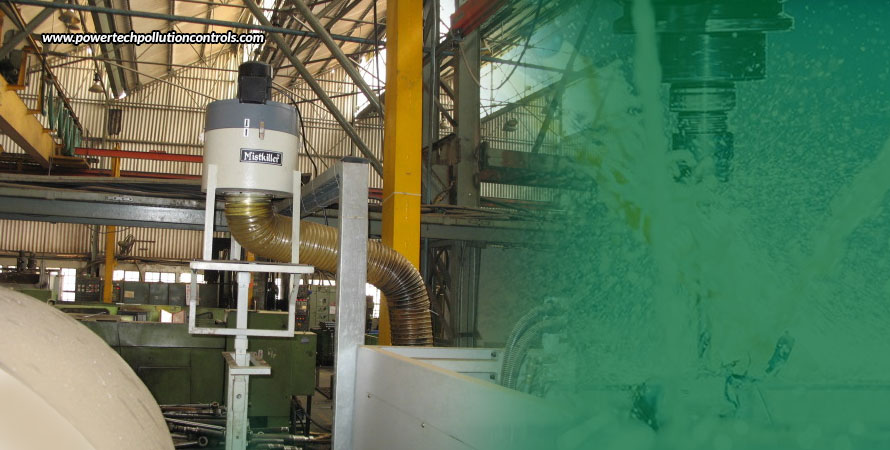
Choosing Your Oil Mist Collector
In almost every industry where machining is executed, oil mist is generated, which is not only dangerous for the workers, but is also harmful to the equipment. Oil mist can result in all sorts of respiratory disorders, skin infections, slips and falls, and the growth of bacteria. All in all, without proper precautions, oil mist can be detrimental when generated within a workshop. Many companies thus install an oil mist collector to combat all these hazards and harm. These machines remove airborne particles from industrial workplaces and improve the quality of the products. Hence, clean purified air can be inhaled even when manufacturing processes are being executed.
Where can oil mist collectors be used?
Oil mist collectors can be used in a myriad of industries and applications. While initially they were used only in the metalworking industry, recent technologies and innovations have helped other industries use these collectors too. These industries include commercial food production industries, air purification industries, CNC machine tooling industries, and other applications that involve turning, sharpening, grinding, milling, and drilling.
How is oil mist generated?
Now that we know what oil mist collectors are, and where they can be used, let’s also understand why such harmful mist is generated in the first place. Oil mist is caused by metalworking fluids that come in contact with fast rotating tools, like in the case of milling and drilling procedures, which is then dispersed into the air causing harm. Any such deposits on the machines can similarly cause damage to the equipment. Any high-pressure fuel oil, lubricating oil, or hydraulic oil, when leaked and comes in contact with a high temperature surface, it vapourizes and forms oil mist.
When choosing your oil mist collector
A number of factors must be considered while looking for an oil mist collector, to ensure that you’re buying the best collector for your applications.
Air quality standards
First and foremost, the air quality standards must be met. When manufacturing processes like milling, grinding, and drilling are carried out, a number of air contaminants, like smoke, fumes, dust, and aerosol are generated. You need to choose a collector that is specifically designed to remove that particular type of contaminant that is being generated within your premises.
Filtration capability
What amount of airflow is required for your specific application? The static pressure should be considered while choosing your mist collector. The higher the static pressure, the more efficient the unit will be to remove the contaminants from the air.
Size and weight
Consider the size and weight of the mist collector. The size can be determined by the amount of airflow required for your application; and the wight can be determined by the machine model.
Noise level
Consider buying a unit that has a lower noise level, so as to keep workers from any harm caused to their ears, which are in close proximity to the mist collector. Also, high noise levels can be disruptive in work environments. It is thus wise to choose a unit specifically designed for low-noise operations.
Technology
Different mist collectors work on different technologies. The three main types of mist collectors include centrifugal, cartridge, and those with panel filters. The centrifugal mist collector uses centrifugal force to rotate the drum, which merges the small droplets of mist into larger ones, which are then blown out of the filter towards the drain. The cartridge mist collector uses one or more cylindrical cartridges, made of paper, cloth, or fiberglass, to remove the mist. mist collectors with panel filters use two or three rectangular filters, with panels made of pleated fiberglass or polyester, to remove the mist from the air. Centrifugal collectors are most efficient with water-based mists, and can handle large volumes before requiring filter replacement; cartridge collectors are 95% efficient, use disposable cartridges, and are easy to maintain; collectors with panel filters can operate 24 hours a day, but are quite expensive, and require a lot of space to be installed.
With so many different oil mist collectors on the market, and so many considerations to make, it can be difficult to know which one is right for your particular application. It is thus always advisable to approach a professional expert and seek advice for the same. Experts like Powertech Pollution Controls can offer the best mist collectors to suit any industrial applications, while also offering a helping hand to choose the most suitable unit for your needs. The unique Mistkiller manufactured here, is a trademarked, high-efficiency centrifugal oil mist collector, that is designed and developed to control most types of mist generated by the use of water-based coolants or water-based liquids.


